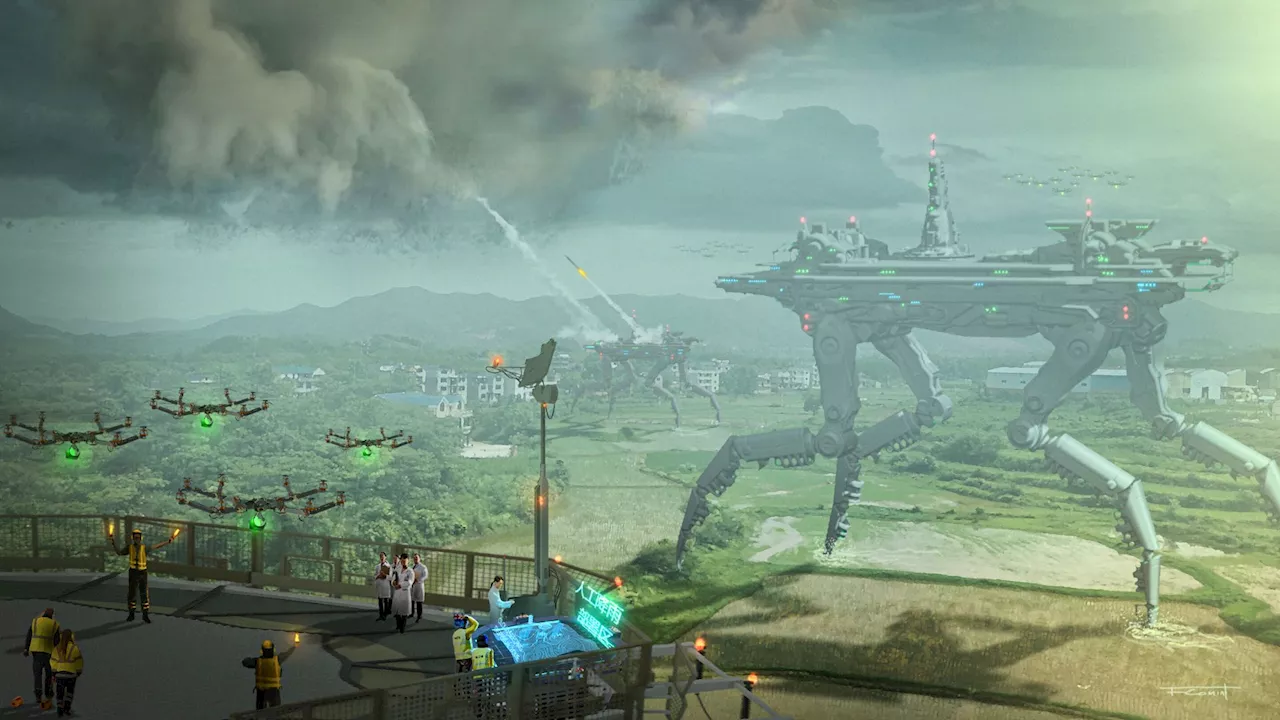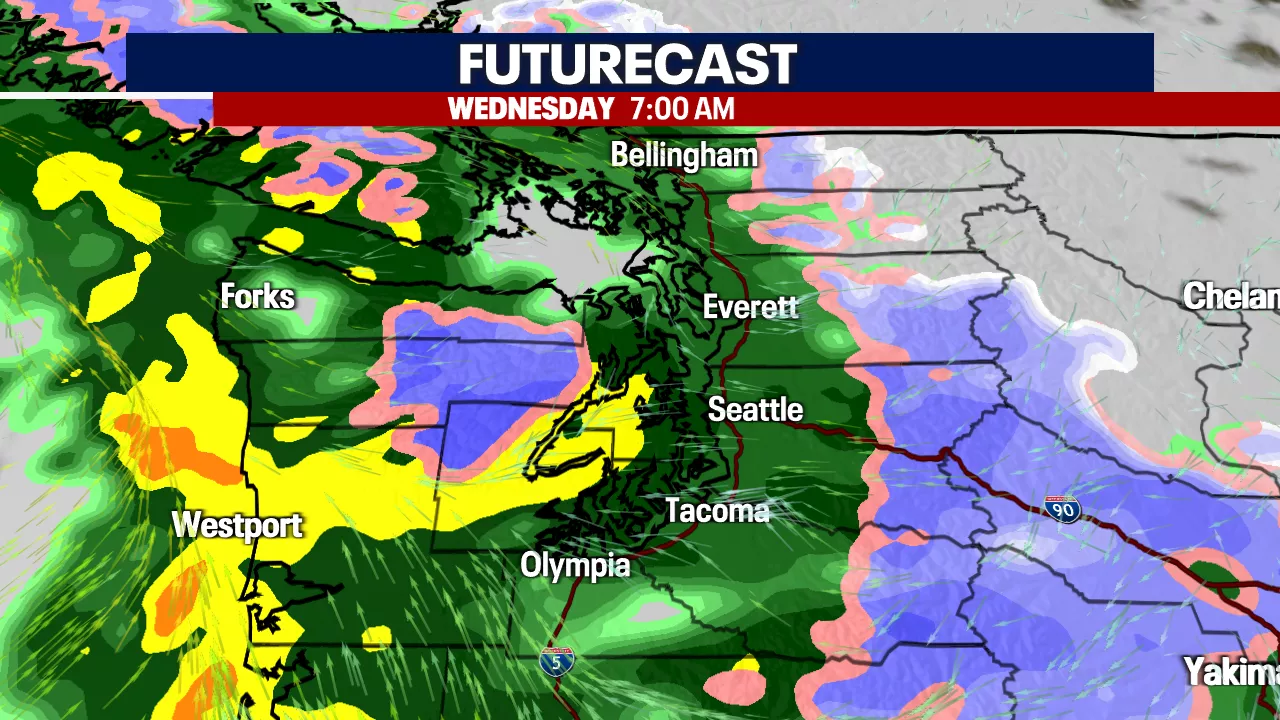Researchers have found that modern weather models can accurately predict the energy that Earth emits and reflects into space, which directly affects the movements of low Earth-orbiting (LEO) satellites.
New research finds that modern weather models can accurately predict satellite movements due to the energy emitted and reflected by the Earth.Researchers have found that modern weather models can accurately predict the energy that Earth emits and reflects into space, which directly affects the movements of low Earth-orbiting satellites.
"Numerical weather models not only simulate weather patterns but also calculate various parameters, including the Earth's energy emissions and reflections under various weather conditions.
Satellites play a crucial role in monitoring vegetation, tracking water resources, and observing glacier evolution through various measurement techniques. These measurements, including image capture and height and gravity field measurements, are essential for studying climate change and its impacts. "Understanding how satellites interact with Earth's atmosphere offers valuable insights into our planet and how it changes over time. The findings contribute to more accurate satellite-based monitoring of terrestrial water resources, and hence to food security, Motlaghzadeh says.Extreme space weather threatens vital satellites orbiting the Earth, including the Global Navigation Satellite Systems which pass through the heart of the outer radiation belt. New research ...
Sun Solar Flare NASA Weather Severe Weather Geomagnetic Storms Environmental Issues
United Kingdom Latest News, United Kingdom Headlines
Similar News:You can also read news stories similar to this one that we have collected from other news sources.
 Satellites in Low Earth Orbit Affected by Bad Space WeatherSatellites in low Earth orbit (LEO) can deviate from their expected trajectories when bad space weather occurs, causing problems for the International Space Station, China's Tiangong space station, and Earth-observing satellites. The accuracy of these satellites is affected by space weather, with the lower altitudes experiencing a bigger problem due to the variations in Earth's upper atmosphere density. Higher density leads to more drag, slowing down the satellites and causing them to sink towards Earth.
Satellites in Low Earth Orbit Affected by Bad Space WeatherSatellites in low Earth orbit (LEO) can deviate from their expected trajectories when bad space weather occurs, causing problems for the International Space Station, China's Tiangong space station, and Earth-observing satellites. The accuracy of these satellites is affected by space weather, with the lower altitudes experiencing a bigger problem due to the variations in Earth's upper atmosphere density. Higher density leads to more drag, slowing down the satellites and causing them to sink towards Earth.
Read more »
 Earth’s water future veers into sci-fi territory, researchers sayCould weather control lead to water wars? Scientists are using science fiction to make us confront the potential horrors of a water-scarce future
Earth’s water future veers into sci-fi territory, researchers sayCould weather control lead to water wars? Scientists are using science fiction to make us confront the potential horrors of a water-scarce future
Read more »
 Why on Earth do we celebrate Earth Day?Earth day is coming up on Monday but do you know what Earth Day actually is. Or why we celebrate?
Why on Earth do we celebrate Earth Day?Earth day is coming up on Monday but do you know what Earth Day actually is. Or why we celebrate?
Read more »
 Researchers find the link between human activity and shifting weather patterns in western North AmericaWestern North America seems to be experiencing more extreme weather events more frequently. From scorching droughts to torrential floods, the climate is changing rapidly, with no signs of slowing down.
Researchers find the link between human activity and shifting weather patterns in western North AmericaWestern North America seems to be experiencing more extreme weather events more frequently. From scorching droughts to torrential floods, the climate is changing rapidly, with no signs of slowing down.
Read more »
 AI-powered 'digital twin' of Earth could make weather predictions at super speedsEmma Bryce is a London-based freelance journalist who writes primarily about the environment, conservation and climate change. She has written for The Guardian, Wired Magazine, TED Ed, Anthropocene, China Dialogue, and Yale e360 among others, and has masters degree in science, health, and environmental reporting from New York University.
AI-powered 'digital twin' of Earth could make weather predictions at super speedsEmma Bryce is a London-based freelance journalist who writes primarily about the environment, conservation and climate change. She has written for The Guardian, Wired Magazine, TED Ed, Anthropocene, China Dialogue, and Yale e360 among others, and has masters degree in science, health, and environmental reporting from New York University.
Read more »
 Seattle weather: Stormy weather ahead for WednesdayTuesday will bring scattered showers, clouds, and sunshine to Western Washington, with stormier weather set to hit early Wednesday morning.
Seattle weather: Stormy weather ahead for WednesdayTuesday will bring scattered showers, clouds, and sunshine to Western Washington, with stormier weather set to hit early Wednesday morning.
Read more »
